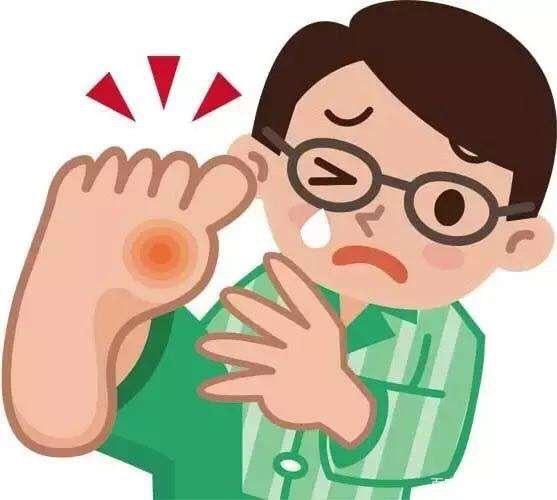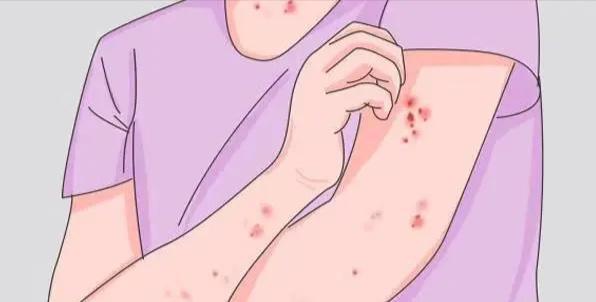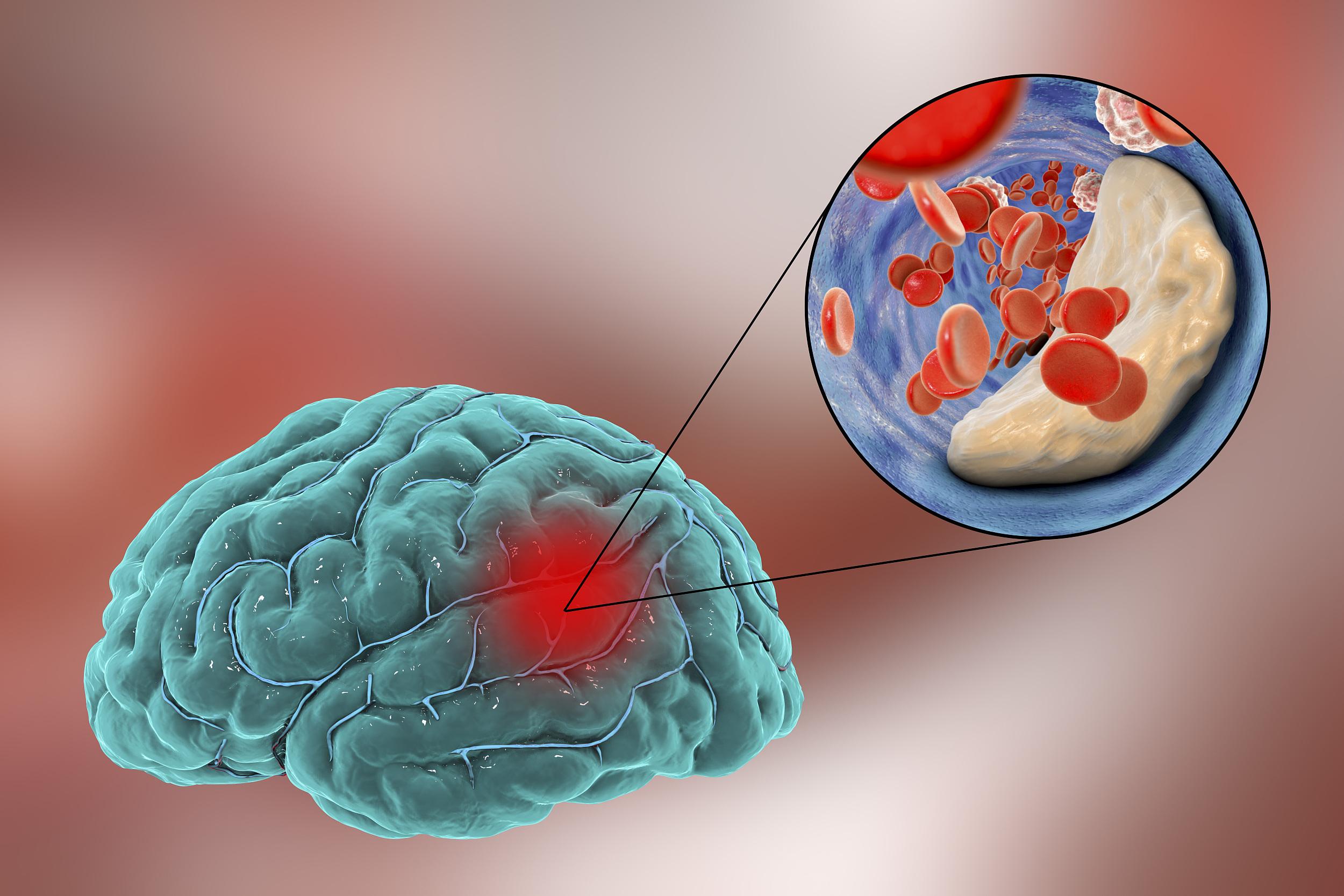Linda, a lady who loves running and outdoor activities, six months ago, every time she walked or ran, she always felt an inexplicable pain on the soles of her feet, as if there was a small stone choking her palms constantly. Especially when accelerating and sprinting, the pain was unbearable, and sometimes she could even feel the pain like an electric current running straight to the tips of her toes, making her toes feel numb. Linda was puzzled in her mind, obviously, the soles of her shoes were flat, and she also checked inside her shoes, but she could not find any foreign objects. She went to an orthopaedic surgeon who, after questioning her about her symptoms, recommended an "ultrasound of the foot". Linda wondered why she would need an ultrasound for foot pain.
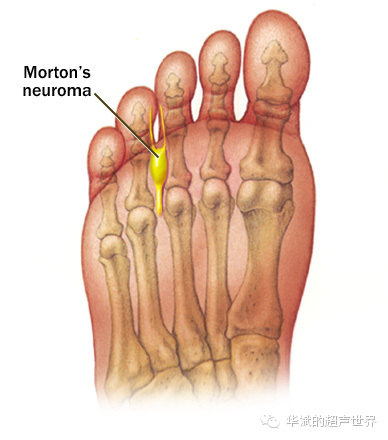
But she came to the ultrasound medicine department anyway. The doctor took the probe, which looked like a magic wand, and gently slid it over the soles of her feet. The image on the screen kept changing, and although Linda couldn't read it, she could feel the doctor's concentration. Soon the doctor told her that he had found a bump like a tumor on the bottom of her foot where the nerve was. The doctor said it wasn't a tumour, but a special condition called Morton's neuroma. It's as if the nerve was forced to "deform" under prolonged pressure and took on this strange shape. To put it simply, the nerves on the soles of Linda's feet have become somewhat "twisted" due to long-term pressure and friction. The root cause of this condition may be the excessive pressure on the ball of Linda's foot when she runs or walks, or the special structure of her foot, which causes the nerve to be pinched between two bones and subjected to long-term compression. This compression allowed the nerve to become swollen, creating the bump that the doctor now sees on the screen.

Who is more likely to have a "bad encounter" with Morton's neuroma? Here are some common "potential" people:
Fashion enthusiasts, especially those who prefer to wear narrow-toed shoes and high heels, as these shoes put added pressure on the forefoot, the nerve may be "tightly bound" and more susceptible to compression and injury.
For those with flat feet, due to the special nature of the foot structure, the nerves may be more easily stretched and irritated, just like a "stretched rubber band", which may cause problems over time.
People with foot disorders such as hallux valgus may experience abnormal pulling or compression of the metatarsal nerve when walking, resulting in unnecessary "torture" of the nerve. Individuals who participate in high-impact sports, such as runners and ballet dancers, may be subjected to frequent "pounding" of the nerves in their feet, increasing the risk of disease. If a foot fracture, soft tissue injury, or joint dislocation occurs, the nerves may experience a "stress reaction" like a frightened child, leading to the development of a neuroma. Inflammation or other lesions in the feet can be like a small "volcano" brewing, and these changes can also affect the nerve, causing it to become abnormal, which can lead to Morton's neuroma.
When Morton's neuroma creeps in, its symptoms can seem like an unwelcome visitor, bursting into your life. The bottom of your forefoot, which should be a solid cornerstone of your steady walk, now becomes a source of pain. Every step you take feels like a dance on sharp stones, making you cringe and want to find a comfortable patch of ground to rest your feet on as soon as possible. You'll feel as if you've stepped on a naughty pebble on the bottom of your foot, or as if there's a stubborn crease in your sock that's constantly irritating your nerves. Whenever this happens, you can't wait to take off your shoes and gently massage the soles of your feet in hopes of temporarily relieving that unspeakable discomfort.
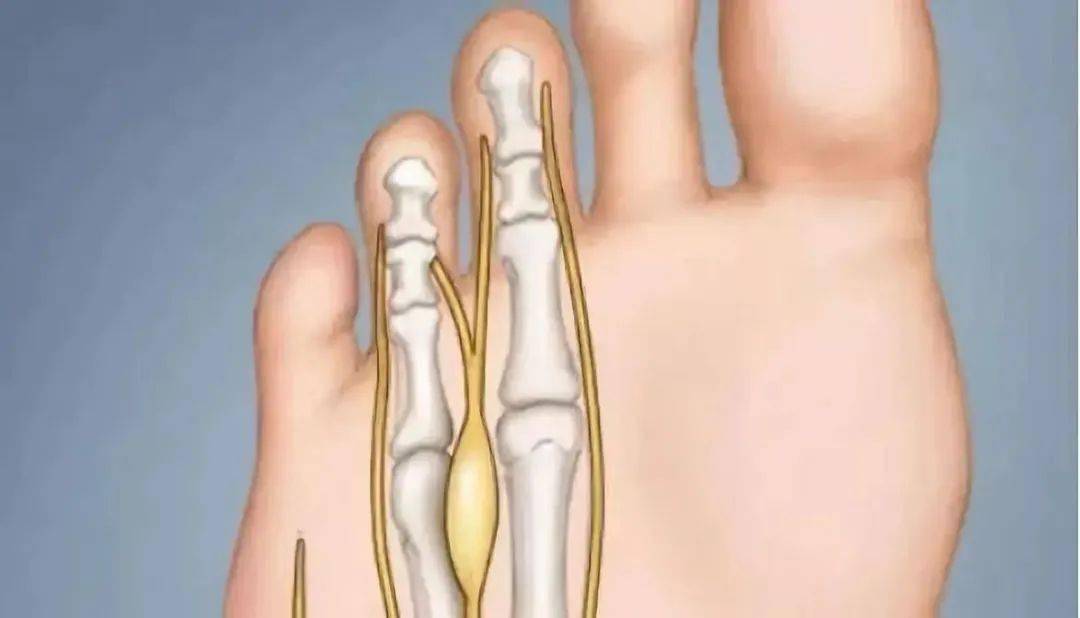
What's worse, when you put on those high heels that you were once so proud of, or those shoes that wrapped tightly around your feet, that pain immediately intensifies, as if your feet are being subjected to harsh punishment. And when the doctor performs a Mulder's sign test, the sensation of crushing and radiating pain is even more unforgettable. It's like a sudden electric shock that instantly makes you feel the intense discomfort of a neuroma.
With treatment for Morton's neuroma, you will be able to regain that comfort and peace of mind that is yours.

